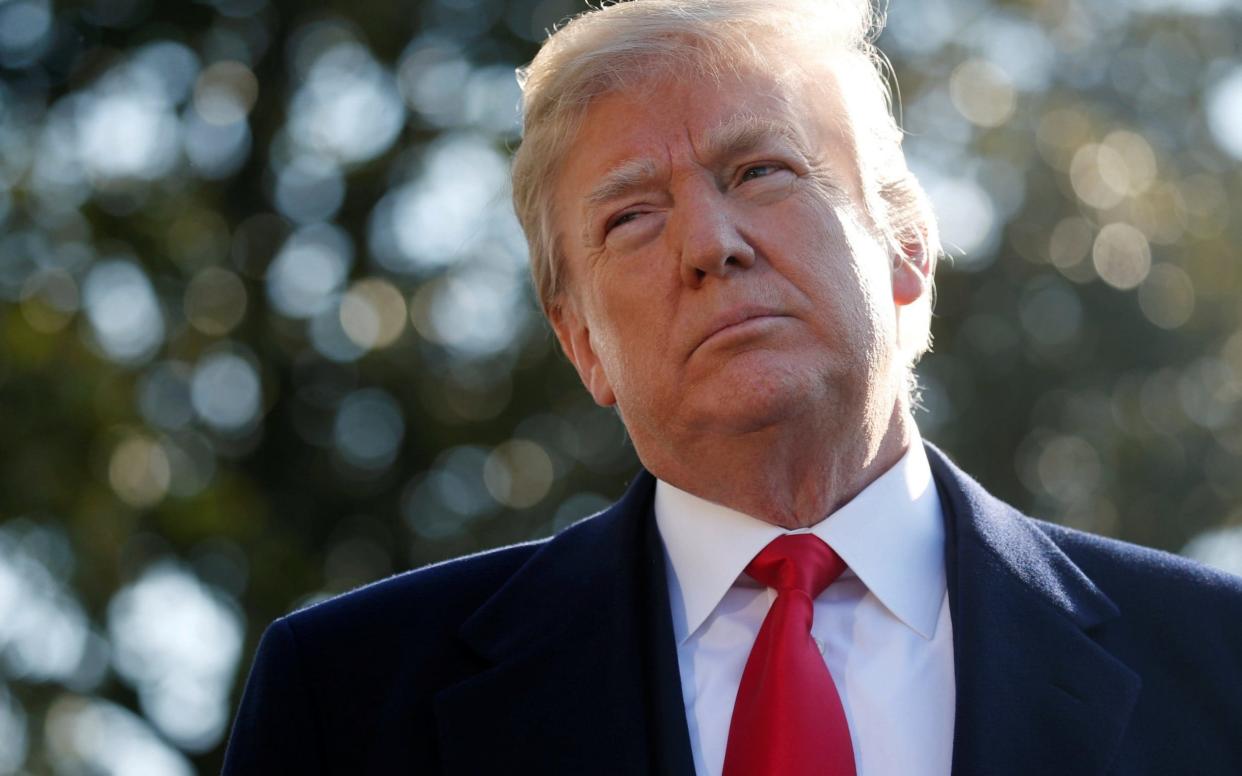Exclusive: Student visas for Britons in America hits seven-year low under Donald Trump

The number of Britons granted visas to study in America has dropped to a seven-year low under Donald Trump, analysis by The Sunday Telegraph has found.
Fewer than 4,500 UK students were given the right to attend a US school or university in 2017, according to official figures released recently.
Last year’s number was lower than at any point since 2010, amounting to a 6 per cent drop in Mr Trump’s first year in office. Experts suggested the fall was partly explained by Britons being put off from studying in America because of the current “unwelcoming” climate.
Some prospective students fear they would not secure a visa to stay and work at the end of their US studies, according to one immigration lawyer.
It is not just Britain affected, with far fewer students from across the European Union getting US visas as well as China and India.
Mr Trump won the White House with an election campaign built on border security and protecting the country from illegal immigration.
Some 4,470 Britons were granted an F-1 visa, which allows for study in America, in the 2017 financial year, according to State Department figures.
That is 6 per cent lower than in 2016, before Mr Trump was president, when the figure was 4753. The 2017 figure is the lowest on record since 2010.
The number of Britons coming to study in America rose for most of Barack Obama's presidency but fell in his last year – meaning the downturn begun before Mr Trump took office.
However the fall has escalated under his watch. Around 400,000 student visas were issued in total in 2017, down 16 per cent on 2016.
The reason for fall is unclear, with Mr Trump not having changed student visa rules and no figures published on how many applications were rejected.
However economics and immigration experts told this newspaper that the heated US political debate around immigration could be putting off British students.
Lynden Melmed, a partner at Berry Appleman & Leiden, one of America’s leading immigration law firms, said the perception of tighter immigration rules could be a factor.
“Even if someone has been admitted to an American college, there’s no guarantee they will be issued a visa by the US government,” Mr Melmed said. “If you’re a high school student figuring out where to go next, will you pay the application fees and put in all the effort to apply to US universities when everything you read says you may not get a visa?”
Mr Melmed added that “well-documented” restrictions on foreign students staying in America to work after their studies could be having an effect. Dick Startz, a professor of economics at the University of California, also pointed to a link between how America is viewed abroad and the fall in numbers.

“The fear is that a lot of people are being made to feel unwelcome. Students have a choice, even once they’ve decided to study out of their country, about where to go,” he said.
“If the US is being looked at as less hospitable, some of those people will decide to go somewhere else, which from a US point of view is really bad. “Firstly, international students bring a lot of money to American universities. And secondly it’s good for US students to meet people from elsewhere in the world.”
A State Department spokesman said: “We want students to know that they should continue to apply to study in the United States.
“Over one million international students are now in US higher education institutions, maintaining the United States’ long-standing position as the world’s top host nation for international students.
“This is a testament to the unmatched quality of American higher education in the eyes of international students and their families.”

 Yahoo News
Yahoo News 
